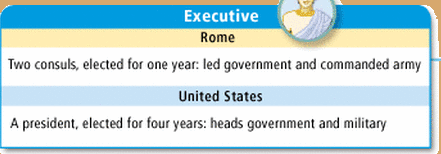Define the words "peninsula" and use it to describe Greece's geography.
A peninsula is a piece of land surrounded by water on three sides. Present day Greece is part of the Balkan Peninsula.
Why were the Olympics originally created?
To honor Zeus
What was the primary purpose of the Egyptian pyramids?
Burial tombs for pharaohs
Which ancient civilization is known for inventing the wheel?
Mesopotamia
True or False: Ancient Egypt was a monarchy.
True
Ancient Mesopotamia was located in which modern day country?
Iraq
What does the word "polytheism" mean?
worship of many gods
What was the acropolis used for in ancient Greek society?
It was used for protection during enemy attacks and as a center of religion.
Name the four types of irrigation Mesopotamia invented.
Irrigation canals, dams, dikes and basins
What is a republic?
a form of government in which the people elect, or choose, their leaders
Why did successful ancient civilizations settle along rivers?
Rivers provide fertile soil, which provides a surplus of crops.
What was the purpose of mummification?
To preserve their bodies for the afterlife.
What did Mesopotamians build with and why?
Mud bricks - they kept heat out in the summer and cold out in the winter
True or False: Most of the Roman aqueducts were above ground, while a small portion of them were underground tunnels.
False
How did Alexander the Great die?
Malaria
Describe three unique features of ancient Rome's geography and how they benefitted ancient Rome.
Volcanos - fertile soil
Mediterranean Sea - trade with other civilizations
Tiber River - travel, trade, fertile landDescribe the difference between a myth and a legend. Name an example of each.
Myth: Stories about how the gods and goddesses affected the lives of people, explain natural events (Athena, Poseidon, etc.)
Legend: Stories handed down from earlier times that explain the past and have an element of truth to them (Trojan War)
Name and describe the three types of Greek columns.
Doric: plain
Ionic: scrolls
Corinthian: ornate and fancy
Which ancient civilization is known for creating the lighthouse?
Ancient Greece
Describe the four stages of Greek government.
Monarchy: one ruler, power in inherited
Oligarchy: several people share power
Tyrant: one ruler, power taken by force
Democracy: citizeans share power
Mountains cover most of mainland Greece. How did the mountains affect the country's development?
The mountains kept the people of Greece from uniting under one government, because they made inland trade and travel difficult.
What initially led to Constantine's conversion to Christianity?
He had a vision from God
Which emperor initiated the building of the Colosseum?
The Colosseum was started under Emperor Vespasian, but he died before it was completed. Construction was finished under his two sons,
Describe two ways the invention of Roman roads benefitted the Romans.
Postal system, faster travel, more connected territories
